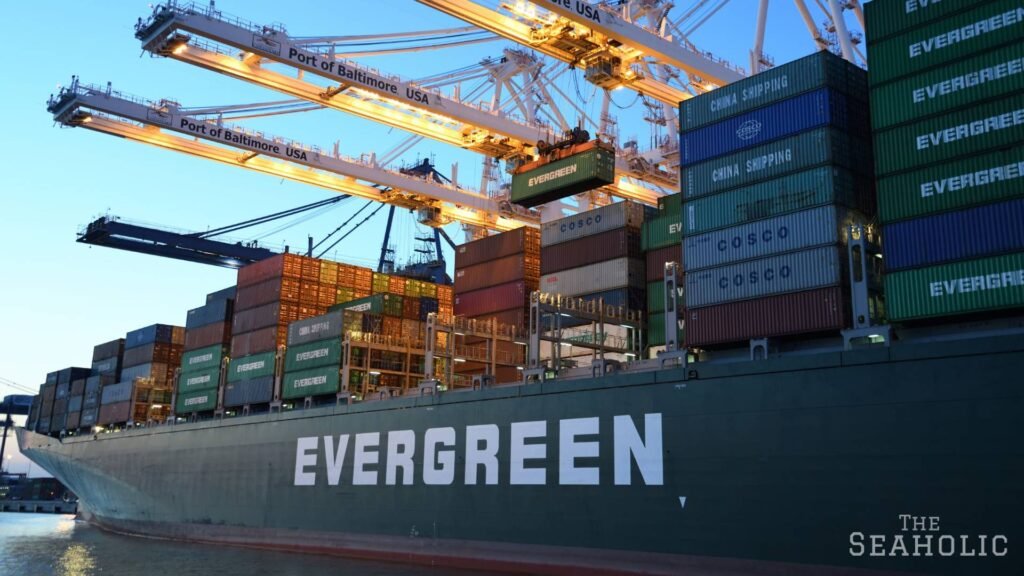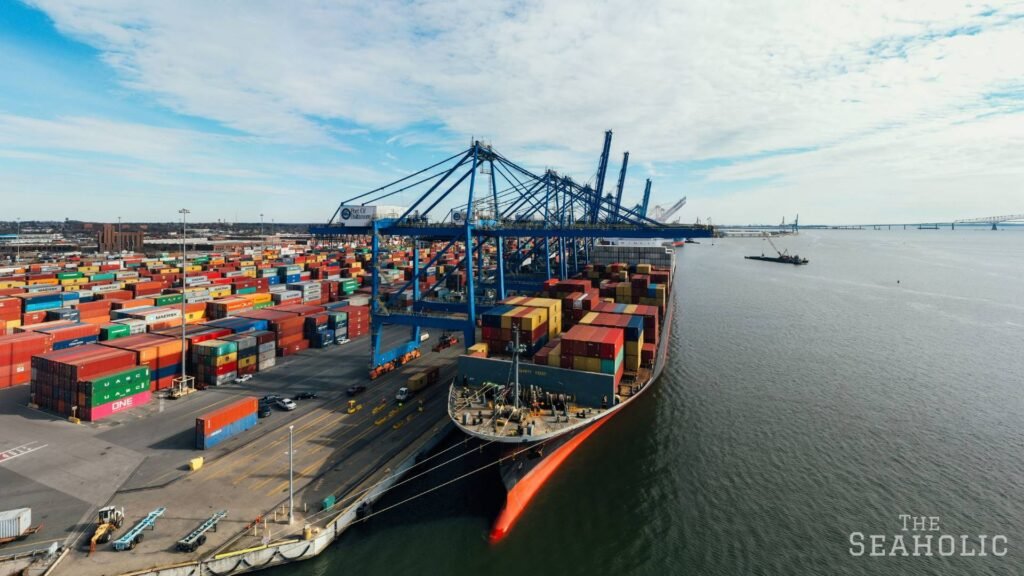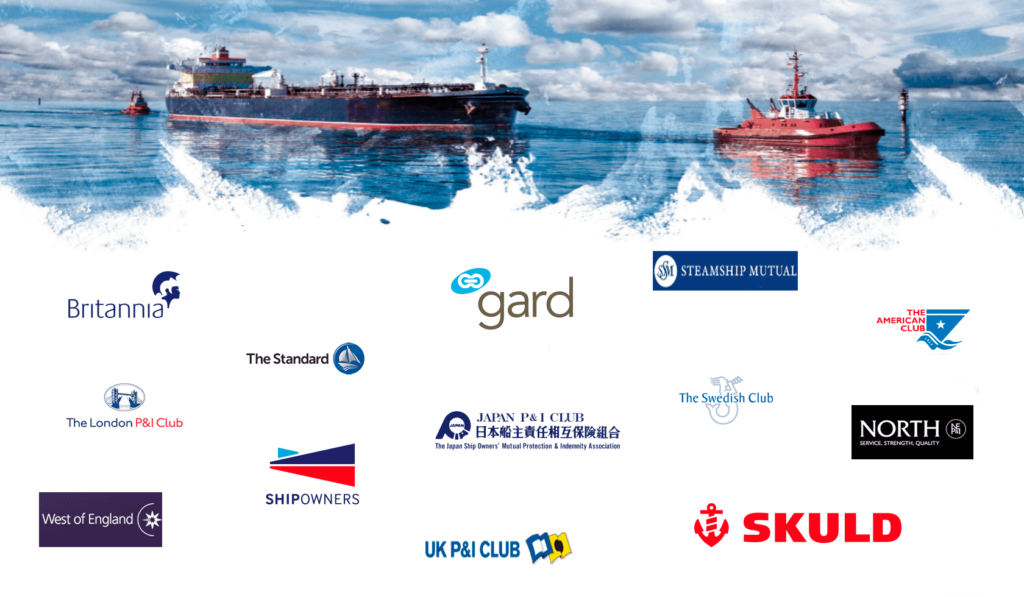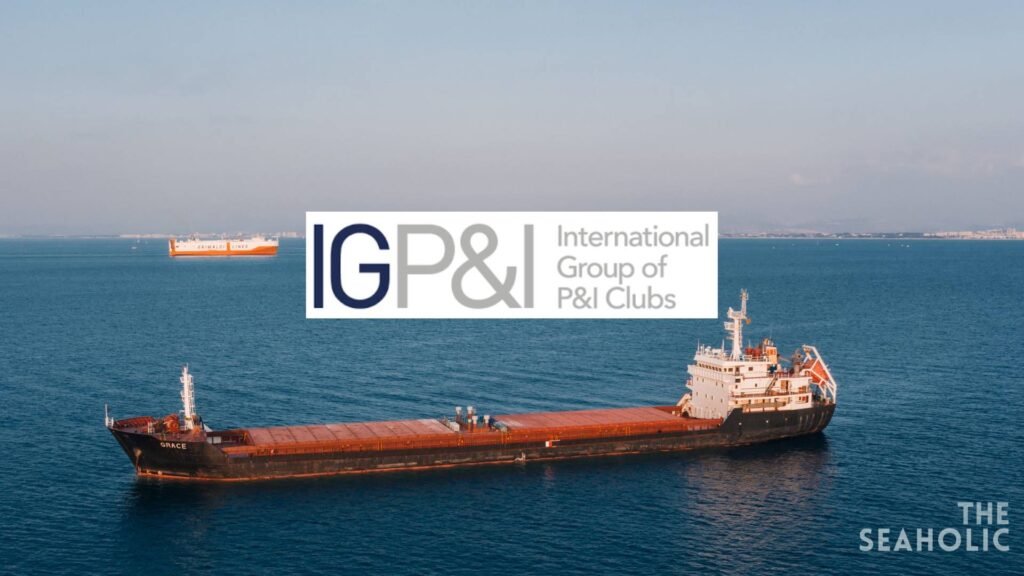Protection and Indemnity (P&I) insurance, also known as P&I clubs, is a form of mutual maritime insurance that provides risk pooling, information, and representation for its members, which typically include shipowners, ship operators, and charterers.
P&I clubs cover a wide range of liabilities, including loss of life and personal injury to crew, passengers, and others on board, cargo loss and damage, pollution by oil and other hazardous substances, wreck removal, collision, and damage to property.
The International Group of P&I Clubs, based in London, is a not-for-profit association of 12 P&I clubs that provide marine liability cover for approximately 90% of the world’s ocean-going tonnage. The International Group’s primary functions include operating claims pooling arrangements, collective reinsurance, and providing a forum for sharing information and expertise on shipowners’ liabilities.
P&I clubs operate as mutual insurance associations, meaning they are owned by their members and report only to them. Members pay a “call” into the club’s pool, which is a sum of money that is put into the club’s common risk pool according to the Pooling Agreement’s rules.
If the risk pool cannot cover current claims, club members will be asked to pay a further call to replenish the pool.
The International Group of P&I Clubs is a unique organization that provides a collective industry voice for the purposes of engaging with external stakeholders, including national governments, marine authorities, and the shipping and marine insurance/reinsurance industries.
Protection and Indemnity (P&I) Clubs are mutual insurance associations that provide liability coverage to shipowners, operators, and charterers. P&I insurance covers liabilities that are not typically covered by hull and machinery insurance, such as pollution, cargo damage, and crew injuries.
Why is P&I insurance Important?

The three essential elements of shipping industry are the ship, the seafarers and the cargo. The one part which is directly connected to all the three mentioned is the “Risk” involved in transporting the cargo on a ship by seafarers.
Due to the “Risk” factor, a shipowner can face substantial monitory losses if his/her ship meets an accident and there is damage to the environment, cargo or to the vessel. Also, the risk to the lives of seafarers is kept above all and thus P&I insurance is a significant aspect of sailing.
Also Read, Carnival cruise Ship overboard Accidents – Why?
During the sea service, the most valuable element onboard, i.e. human life can be at risk due to illness, injury by accident or even death by hazards.
A P&I club provides compensation in the form of insurance cover for reasons as mentioned above to the seafarers. This not only helps him in the difficult time but also to the seafarer’s family in case of death of their earning member.
Each P&I club sets a premium for an individual owner reflecting:
- The risks against which he requires cover
- His fleets gross tonnage
- His fleet exposure to risk
- Other factors including the likelihood of significant claims in the coming year
History and Evolution of P&I Clubs
P&I Clubs have a long history, dating back to the 19th century when they were established to protect shipowners from the financial risks of owning and operating ships. Over the years, P&I Clubs have evolved to meet the changing needs of the shipping industry, expanding their services and coverage.
Protection and Indemnity (P&I) clubs have a rich history that dates back to the 18th century, when British shipowners formed small hull insurance clubs to address the limitations of the two companies granted a royal monopoly on marine insurance. These hull clubs were later joined by indemnity classes, which provided cover for liabilities such as loss of life and personal injury, and collision risks.
The first P&I club, the Shipowners’ Mutual Protection Society, was established in 1855, and it was intended to operate like a mutual hull club but cover liabilities for loss of life and personal injury.
Other similar associations were formed, and in 1874, the risk of liability for loss of or damage to cargo carried on board the insured ship was first added to the cover.
The International Group of P&I Clubs, based in London, was formed in the 19th century, and it now comprises 12 clubs that provide risk pooling, information, and representation for their members.
The International Group’s primary functions include operating claims pooling arrangements, collective reinsurance, and providing a forum for sharing information and expertise on shipowners’ liabilities.
The P&I clubs have evolved to include a wide range of liabilities, such as loss of life and personal injury, cargo loss and damage, pollution by oil and other hazardous substances, wreck removal, collision, and damage to property.
The clubs have also grown in size and complexity, and their policies are constantly developed in line with international maritime law and trade.
What are the Functions of P&I Clubs?

- Ensure ship owners and operators against third-party liabilities not covered by hull and machinery policies obtained. The club will usually only accept risks on chartered-in-tonnage where the member also has owned vessels entered with the organization. Charterers club exists to offer similar cover for charterers
- Often ensure entire company fleets, but tend to prefer owners with similar types and standards of fleet
- May subject owners vessels to inspection before entry into the club and during membership
- Strive to keep ‘calls on their members’ at a minimum through loss prevention methods such as information bulletins aimed at owners insurance officers
- Disseminate information aimed at keeping members premiums down
- Produce lists of correspondents and reliable lawyers and surveyors
- Produce standard forms of letters of indemnity and protest
- May post bonds against members, ships when under arrest
- Issue handbooks containing club rules and lists of correspondents, which are very useful to master seeking advice and assistance win in any kind of trouble
Structure and Functioning of P&I Clubs

P&I Clubs are owned by their members, who are also their policyholders. Members contribute to a common pool of funds, which is used to cover liabilities and operating expenses. P&I Clubs are governed by a board of directors, elected by the members, who oversee the club’s operations and finances.
Protection and Indemnity (P&I) clubs are mutual insurance associations that provide risk pooling, information, and representation for their members, which typically include shipowners, ship operators, and charterers. P&I clubs operate as non-profit cooperatives, and their insurance is financed by “calls” rather than premiums.
Members contribute to the common risk pool according to the Pooling Agreement’s rules. If the risk pool cannot cover current claims, club members will be asked to pay a further call. If the pool has a surplus, the club may ask for a lower call the following year or make a refund to members
The International Group of P&I Clubs, based in London, comprises 12 clubs that cooperate to provide funds in the event of huge claims using a complex system to determine liability. The International Group of P&I Clubs is a unique organization that provides a collective industry voice for the purposes of engaging with external stakeholders, including national governments, marine authorities, and the shipping and marine insurance/reinsurance industries
Services Provided by P&I Clubs

P&I Clubs offer a range of services to their members, including insurance coverage for liabilities, legal advice and representation, risk management services, and assistance with claims handling and settlement. P&I Clubs also provide support in emergency situations, such as oil spills or shipwrecks.
Protection and Indemnity (P&I) clubs provide a range of services to their members, which typically include shipowners, ship operators, and charterers. These services are designed to help members manage and mitigate risks associated with the operation of their vessels. Some of the key services provided by P&I clubs include:
- Claims handling: P&I clubs manage claims on behalf of their members, providing legal advice and representation to help resolve disputes and minimize losses.
- Advice on legal issues: Clubs offer guidance on legal matters related to ship operations, including contractual obligations, liability, and regulatory compliance.
- Loss prevention: Clubs disseminate information and best practices to help members reduce the risk of accidents and incidents.
- Random ship inspections: Clubs may subject members’ vessels to random inspections to ensure compliance with club rules and industry standards.
- Reinsurance: P&I clubs cooperate to provide funds in the event of huge claims, using a complex system to determine liability.
- Claims pooling: Clubs share large claims between their members, helping to spread the risk and reduce the financial burden on individual members.
- Collective industry voice: P&I clubs represent their members’ interests to external stakeholders, including national governments, marine authorities, and the shipping and marine insurance/reinsurance industries.
- Production of standard forms and handbooks: Clubs produce standard forms, such as letters of indemnity and protest, and handbooks containing club rules and lists of correspondents.
- Bond posting: Clubs may post bonds against members’ ships when under arrest.
- Correspondents and reliable lawyers and surveyors: Clubs maintain lists of correspondents and reliable lawyers and surveyors to assist members in need of legal or technical advice.
These services help P&I clubs to manage risks and protect their members’ interests, ensuring the safe and efficient operation of their vessels.
Also read, 5 Reasons Why Boat Insurance is a Must-Have for Every Boat Owner
P&I Insurance Coverage
P&I insurance covers a wide range of liabilities, including but not limited to:
- Collision liability
- Pollution liability
- Cargo liability (Cargo claims for damage or loss of the same).
- Crew liability
- Passenger liability
- Wreck removal
- Stowaways and its repatriation arrangement.
- Unrecoverable GA contributions.
Benefits of Joining a P&I Club
Risk Pooling: P&I clubs provide risk pooling, allowing members to share and mitigate the financial impact of liabilities not covered by traditional insurance. P&I clubs offer information and representation for their members, particularly in the event of maritime casualties and legal issues
Loss Prevention & Claims Handling – Clubs disseminate information and best practices to help members reduce the risk of accidents and incidents. P&I clubs manage claims on behalf of their members, providing legal advice and representation to help resolve disputes and minimize losses.
- Financial protection against liabilities
- Legal advice and representation
- Assistance with claims handling and settlement
- Access to a network of experts in the maritime industry
- Risk management services to reduce the likelihood of claims
Case Studies or Examples involving P&I Club
One example of the importance of P&I Clubs is the grounding of the MV Rena off the coast of New Zealand in 2011. The P&I Club representing the owners of the Rena played a crucial role in managing the aftermath of the grounding, including coordinating the salvage operation and dealing with claims from affected parties.
In conclusion, P&I Clubs play a vital role in the shipping industry, providing essential services and financial protection to shipowners, operators, and charterers. Their role in managing risks and liabilities helps to ensure the continued operation of the maritime sector, contributing to global trade and economic development.
Sources: https://www.igpandi.org/
FAQs
1. What is the difference between P&I insurance and hull and machinery insurance?
P&I (Protection and Indemnity) insurance covers third-party liabilities for shipowners/operators, excluding damage to their own property or direct loss, while hull and machinery insurance insures and protects a shipowner’s vessel as its main asset. P&I insurance covers liabilities such as loss of life, injury, illness, damage to cargo, damage to piers, docks, and other fixed or floating objects, wreck removal costs, and collision liability.
Hull and machinery insurance covers loss or damage to the hull and machinery of the insured vessel, including the structure of the vessel, equipment, and machinery that powers and controls the vessel. The two types of insurance are often complementary when it comes to collision liability and liability for damage to piers, loading cranes, and other third-party property
2. How are P&I Clubs regulated?
P&I clubs are regulated through a combination of self-governance, international agreements, and national and international laws. The International Group of P&I Clubs, which consists of 12 major clubs, operates with a claims pooling and reinsurance structure that enables each club to provide cover with very high limits.
The clubs are non-profit cooperatives, and their members are responsible for electing the club’s directors, who manage the club’s affairs. The clubs are also subject to national and international regulations, such as the International Convention on Civil Liability for Oil Pollution Damage (CLC) and the International Convention on the Establishment of an International Fund for Compensation for Oil Pollution Damage (Fund Convention).
These conventions set limits on the liability of shipowners and provide compensation for oil pollution damage
3. Can any shipowner join a P&I Club?
No, not every shipowner can join a P&I club. Joining a P&I club is typically a requirement for shipowners, and the process for becoming a member involves completing an application form and paying an annual premium.
P&I clubs are non-profit cooperatives and are owned by their members, who pool their resources to share the financial risks associated with operating vessels
5. Are P&I Clubs affiliated with any international organizations?
Yes, P&I clubs are affiliated with an international organization known as the International Group of P&I Clubs. This group comprises 13 mutual marine insurance associations (“Clubs”) that together provide liability cover for their shipowner and charterer members against third-party liabilities relating to the use and operation of ships

